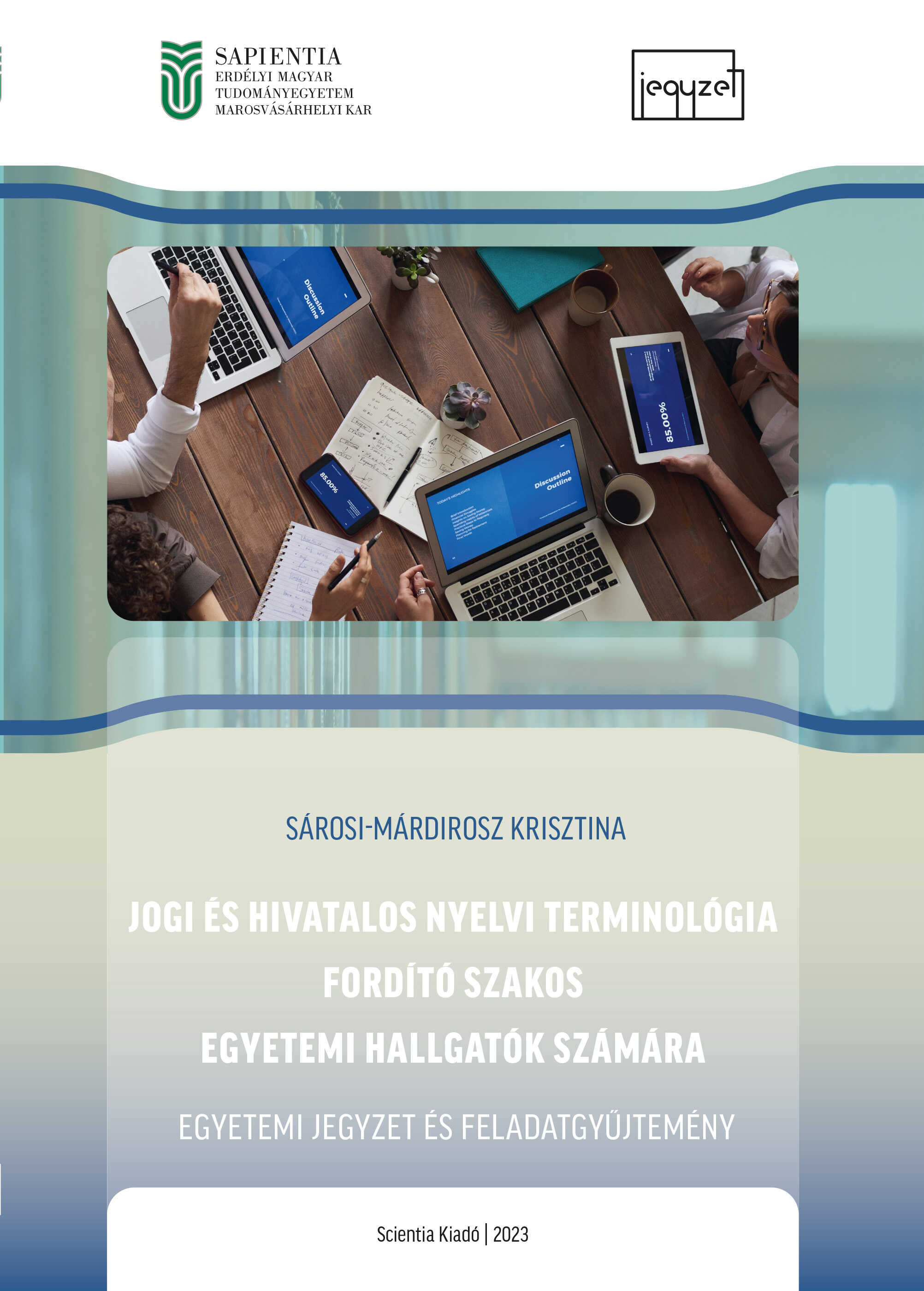Jogi és hivatalos nyelvi terminológia fordító szakos egyetemi hallgatók számára
Egyetemi jegyzet és feladatgyűjtemény
Course Book and Collection of Exercises
Author(s): Krisztina Sárosi-Márdirosz
Subject(s): Translation Studies
Published by: Scientia Kiadó
Keywords: legal language; terminology; official language; EU administrative language;
Summary/Abstract: The purpose of this course book is to present students the characteristics of professional language use and the terminological features of legal and official language. The theoretical framework of the course book presents the general characteristics of special languages and the background of terminology research related to special languages, and then it deals with the specificities of special languages and texts belonging to the fields to be discussed. In addition to the two main areas to be discussed (legal and official language), the course book also covers some of the most interesting specificities of the EU administrative language. One of the main objectives of the present work is to provide university students studying translation and interpreting with a brief insight into the theoretical background of languages for special purpose and terminology research and then to make them acquainted with the practical aspects of terminology in the fields covered that are relevant to translators. In line with this objective, the course book consists of two chapters: the theoretical background, which is divided into two further parts (general terminology knowledge and specific legal language knowledge), and the practical part, which consists of 20 worksheets that aim to help students to supplement their theoretical knowledge and to develop their terminological and technical language competencies and skills, because we consider this is of great importance in the context of translator training. The course book highlights the characteristics of the special languages that are discussed and aims to illustrate terminological and technical differentiation and diversity with examples and classifications. Besides highlighting the most important aspects of special languages it also presents the features of special language texts and their possibilities of analysis. In addition, it focuses on terminological nomenclatures as well. At the end of each chapter, students have the opportunity to check their theoretical knowledge by solving the block of questions. At the end of the book, there is a definition of the special terms used in the book that need to be explained. Most of the exercises include text-based terminological analysis tasks, but some of them are designed to help students develop their special vocabulary. All selected texts can be considered authentic texts, meaning that all texts have been elaborated by an expert in the relevant field and as such present a credible picture of the terminological difficulties encountered in the translation process and a good perspective for the development of special language skills.
Series: Jegyzetek
- Print-ISBN-13: 978-606-975-083-4
- Page Count: 136
- Publication Year: 2023
- Language: Hungarian
- Table of Content
- Sample-PDF
- Introduction
- eBook-PDF

